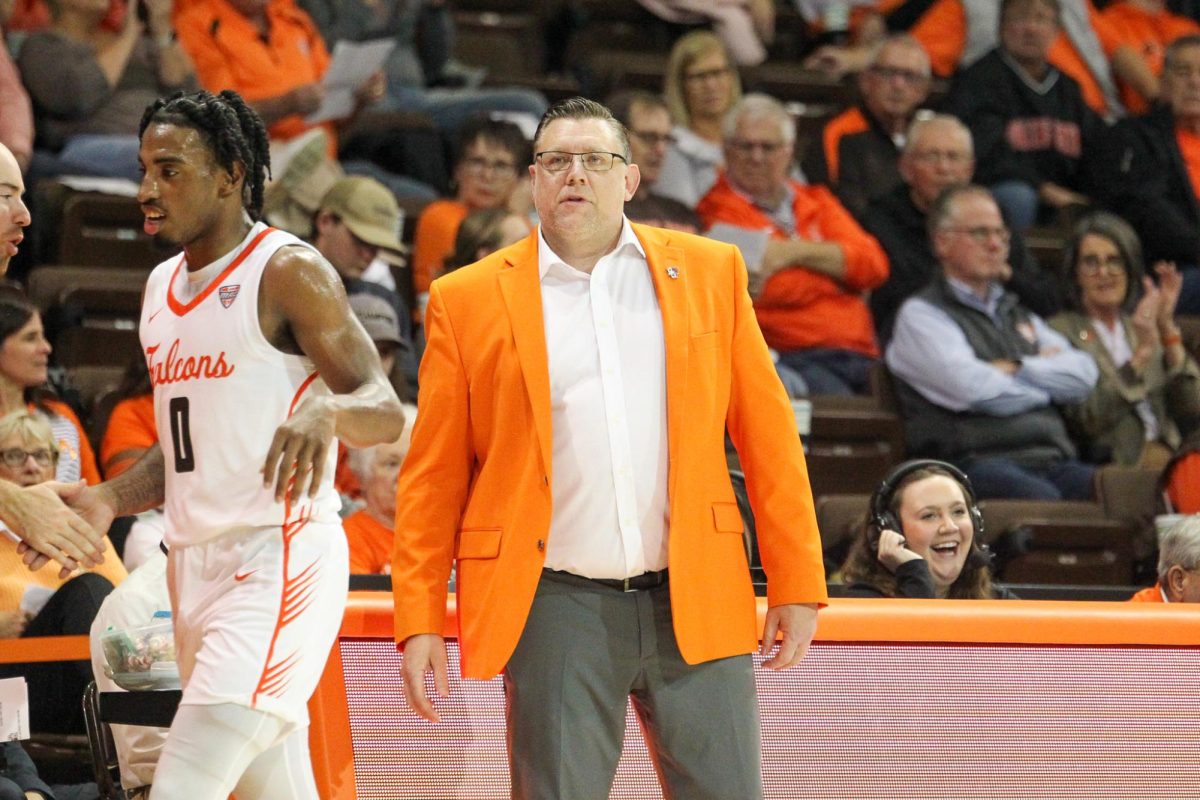When I am not in the mood to do anything productive like household chores or homework, I often find myself popping in a movie or opening up a comic book.
While I must admit my self esteem suffers slightly from the procrastination, I’m still stimulating my brain, whether I’m reading higher literature or watching repeats of “Beavis and Butt-head.”
The American Heritage Dictionary defines art as “creative or imaginative activity.” It can be argued, then, everything around you reflects someone’s creativity, no matter how commonplace or mundane it may seem.
The beauty of these different forms of art is that everyone reacts differently to each kind. In many ways, it is a good indicator of someone’s personality.
I enjoy many different kinds of music, with rock and popular music at the top of the list. This is because I like my entertainment loud with lots of hooks and emotion, no matter how “intelligent” the music may be
considered by critics.
However, I can also see where many critics come from when they praise things for having many “layers,” and “The Simpsons” is a great example.
When the show began, it was popular because of Bart’s antics and Homer’s crude behavior. This also happened to outrage many people, who labeled the rebellious characters bad role models for kids and society at large.
Critics sang a different tune from the naysayers, and they found the humor to be a clever and realistic look at the realities of American family and suburban lifestyles, showing how different people can take different meanings from the same product.
Growing up, I knew a lot of people who were not allowed to watch the program because of occasional bad language and the perception that it was a “dumb” show.
There were certainly a lot of jokes that played off Homer Simpson’s stupidity, but I would go so far to say the show’s earlier seasons are perhaps the most sophisticated “adult” humor I have ever watched.
As a child, I enjoyed the outlandish stories and crude jokes, but when I watch the seasons now, I catch a lot of references to historical figures such as Robert Mapplethorpe and Richard Nixon. These are jokes I never would have understood without a college class or two to help me brush up on why these figures were significant to popular culture.
I happen to take joy out of memorizing each line of the show, which I’m sure will draw comparison to obsessive fans of other works like “Star Trek” (nothing wrong with that, by the way).
Some people worry about obsessing over a book or television show for fear of disconnecting with the real world in favor of a fantasy.
This is a valid concern, but people need to keep in mind that all of these fictional works were created from the observations of an author who decided to express it through fantasy to draw our attention.
These observations are drawn through the author’s actual thoughts and experiences, and I feel like the author is communicating with me on some level.
That’s pretty real to me.
Respond to Bobby at

















